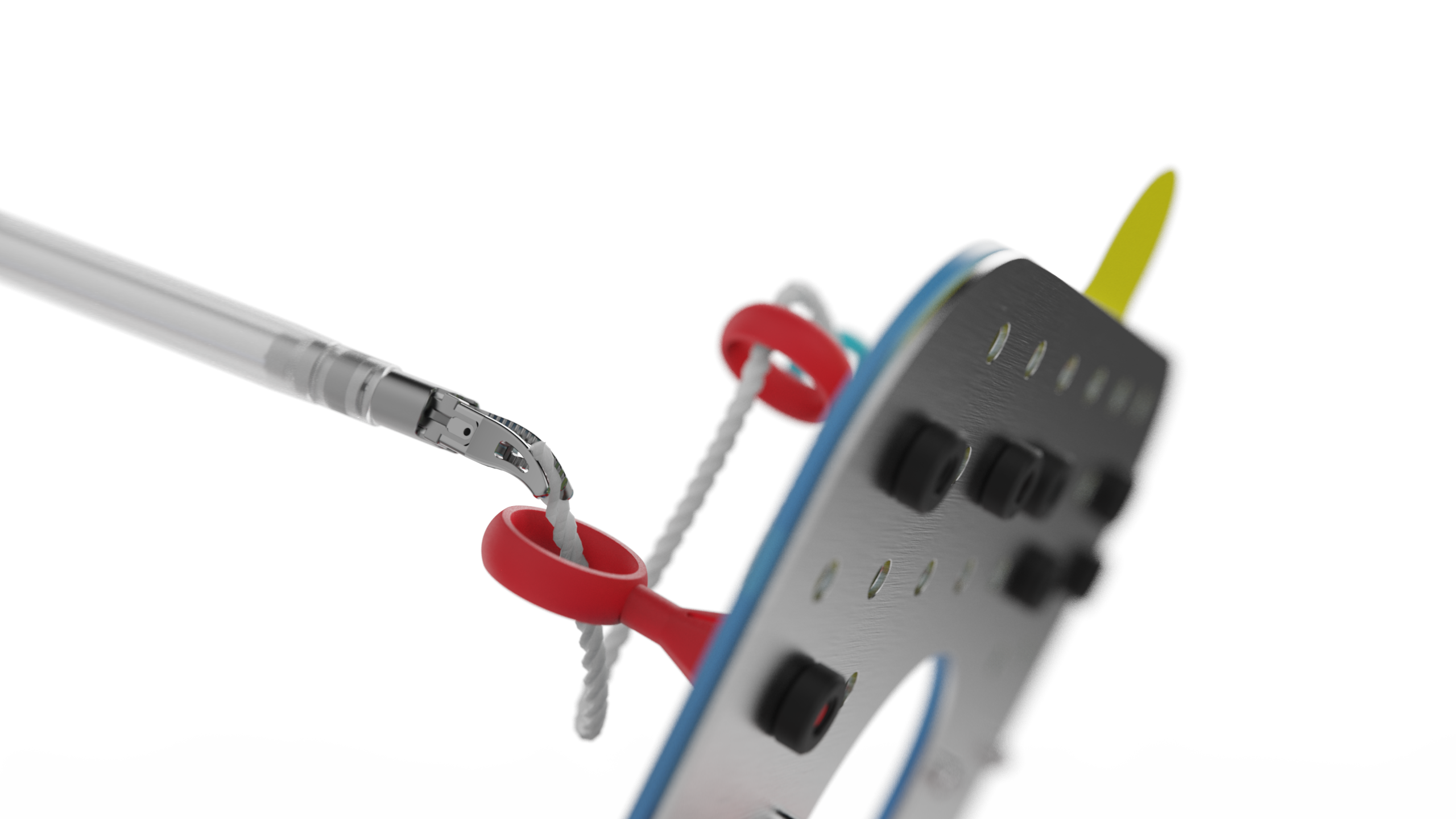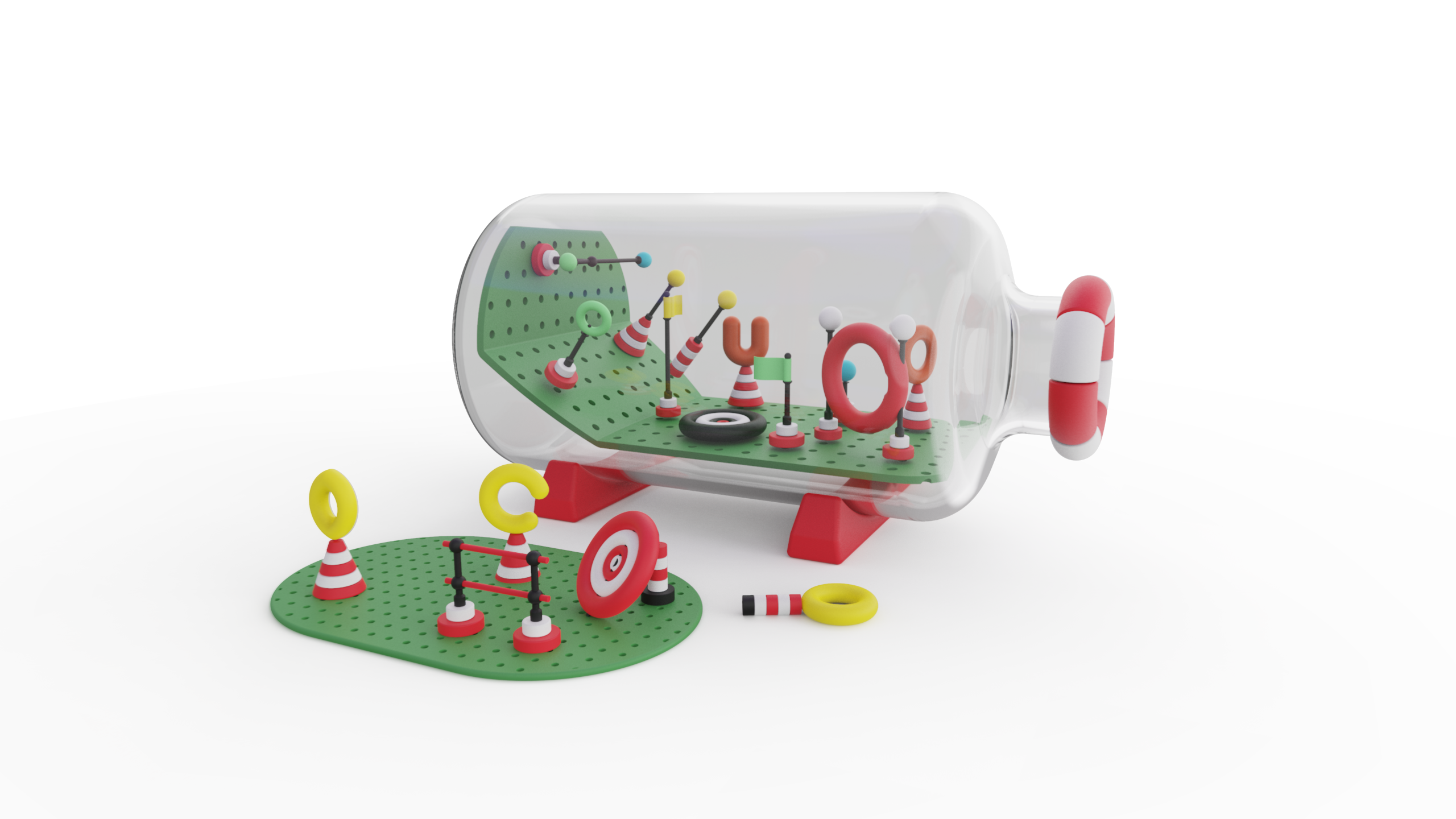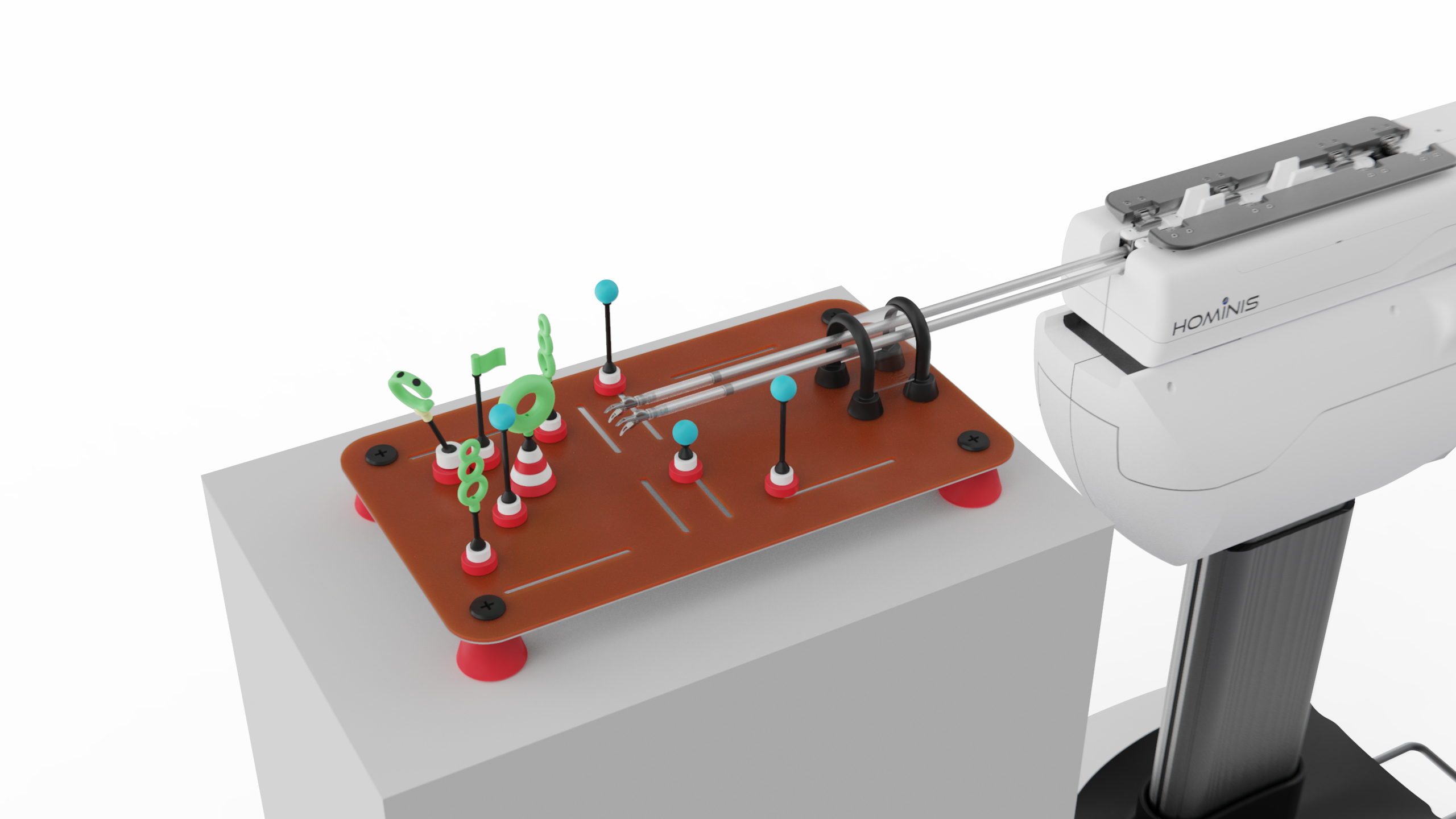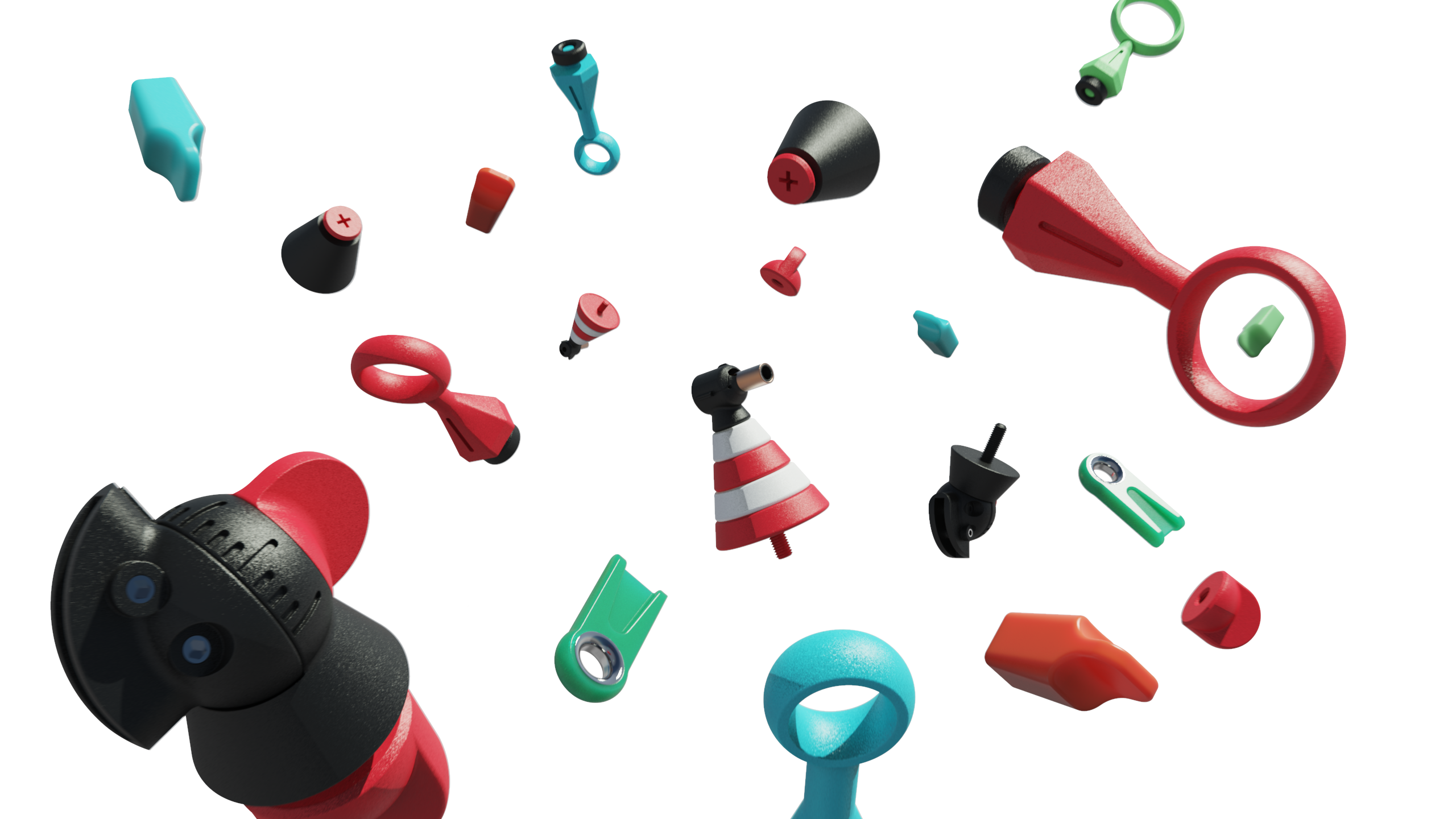
As the co-founders of industrial design firm Flamingo Works, Yonatan Assouline and Naty Moskovich mention that one of the things they value most about their ongoing partnership with Shapeways is that they’ve been doing it so long. Upon their first collaboration years ago, both companies had one sure thing in common: an affinity for medical 3D printing and determination to see the technology play a continued role in product development and industrial manufacturing.
3D Printing for Gamified Learning
Clearly, we’re not talking hobbyists here, as Assouline and Moskovich head up a design firm which industrial clients rely on for smart, utilitarian products, as well as creation of test concepts, human interfaces, and 3D printed models. Their mission is to give shapes to ideas, interface to technology, and form to innovation–a theme prominently on display in their recent work creating a new learning platform for doctors training in robot-assisted surgeries. This latest project displays the evolution of Assouline and Moskovich’s work in medical training applications, progressing from making industrial parts to a complete system of learning tools that are intuitive, colorful and gamified.

“In the beginning we were working with a long-time client, designing auto covers for robotic arms,” said Yonatan Assouline, Manager and Co-founder of Flamingo Works. “As time passed we began designing for more peripheral parts of their systems, and other relevant products. When they approached us to design a type of simulator for training for robotic surgeries, we quickly realized we wanted to take a new approach and gamify the tasks.”
Avoiding the idea of mimicking the human body ‘awkwardly’ with materials like silicone, the designers realized the best way to encourage deep learning would be to take surgeons completely out of their comfort zones, and away from viewing and attempting exercises that are similar to ones they have already mastered.

“Instead of producing a model of the human body and asking surgeons to attach tissue because it is something they are used to seeing on a daily basis, we opted to design a simulator that would be more challenging,” said Assouline.
The concept progressed during product development from the idea of working from within a small enclosure–replicating the point of incision into the human body–to relying on a completely open platform instead. The industrial designers realized the best course of action was to focus on mastery of the robotic grippers.
Choosing the Best 3D Printing Materials and Technology
In their attempt to veer as far away as possible from designing models of 3D printed organs or tissue, Flamingo Works collaborated with Shapeways to select the right material and technology for manufacturing a large number of multi-colored parts that would be durable, and could be printed within one build for later assembly into the learning platforms.

Nylon 12 [Versatile Plastic] was a logical choice and the best 3D printing material–essential to product development for many other Shapeways customers too, popular due to excellent mechanical properties, durability, tensile strength, and biocompatibility. Prototypes and parts 3D printed with Nylon 12 [Versatile Plastic] using Selective Laser Sintering (SLS) are porous, which is what makes them so suitable for finishing options like polishing and dyeing. A range of color options are available for medical 3D printing, including black, pink, red, orange, yellow, green, blue, and purple.
Nylon 12 3D printing is extremely popular due to the range of options available for industrial manufacturing. This begins with the expansive design freedom allowed, mainly due to the elimination of supports in the design process. Because the unused powder bunches around parts during printing, stabilizing and supporting them, engineers are relieved of the added task in designing intricate supports that must not only be considered for designs with other technology, but can cause damage to perfectly good parts during post-processing as they are removed. The lack of supports also makes it much easier to nest large numbers of parts together in one build.

“One challenge features a pick and place exercise, using rubber pieces with magnets,” said Assouline. “What is relevant is that the entire adjustment system was 3D printed with Shapeways capabilities. You can adjust the secondary board position both on the training table itself, and you can adjust both its position as well as its angle. Once again, because it was printed with Nylon 12, it has great durability.”
Rapid Prototyping was Key to Quality Product Development
Patience is usually required during product development and testing, but it’s something that Shapeways and many of their customers have become accustomed to–enjoying one of the greatest benefits in 3D printing: rapid prototyping. While one customer may only require several iterations during product development, testing for fit and functionality, another may need over a hundred.
While Shapeways and Flamingo Works moved forward with the gamified training system, the industrial designers were often in the process of developing 50 to 60 different tasks and waiting for feedback from physicians. It was important for the surgeons to begin using the new system as soon as possible, practicing and giving their feedback. Because that process was so streamlined via 3D printing, the industrial design team was able to communicate their ongoing needs to Shapeways quickly and move the whole process along efficiently with fast turnaround times.

“If we need to validate an idea, we know exactly how much it’s going to cost from Shapeways, and how long it will be until we receive a 3D printed prototype,” said Assouline. “Our client representative offers a personal approach too, helping us if we need certain things or different options.”
Flamingo Works is offering a revolutionary new way to train doctors, as well as using the best 3D printing printing material for their gamified learning platforms. Working together since 2009, Shapeways and Flamingo Works have scaled business upward, progressed in the use of materials and technology–and the level of sophistication in projects.
About Shapeways
Enjoy the benefits of this advanced technology and a wide range of materials from Shapeways for 3D printing your creations with accuracy, complex detail, and no minimum or limits in terms of mass customization or single part orders. Shapeways has worked with over 1 million customers in 160 countries to 3D print over 21 million parts! Read about case studies, find out more about Shapeways additive manufacturing solutions, and get instant quotes here.


